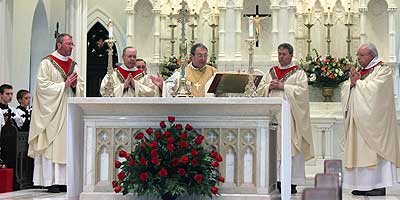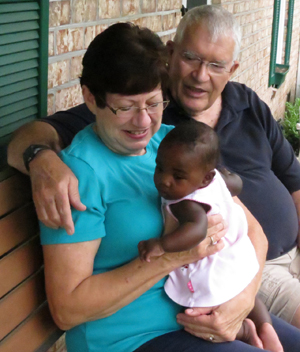
The farther we get into this presidential race, the better I understand my father and Blessed Teresa of Calcutta.
My father was a World War II veteran and one of those sons of an immigrant who took his citizenship very seriously. He voted in every election: primary, local, state, and national. He considered it a moral obligation for anyone who lives in a democracy — and probably a matter of confession if one simply blew off an opportunity to vote. Our family resolutely watched the televised nominating conventions of both parties every four years, and we were able to stay up late to do so.
When I was a young teen, I didn’t quite understand my father’s remark to me that he had, on several occasions, written in a vote for Harold Stassen when it came time to vote for president. Stassen had been governor of Minnesota, was a World War II veteran and a man of faith. He probably holds a record for the number of times he ran unsuccessfully for office after the war was over. My father was convinced that winning, or even his candidate’s prospect for winning, was not what the right to vote was about. It was, instead, a commitment to vote one’s conscience and to indicate on the ballot the person whose principles resonated with one’s own sense of faith and civic virtue.
Mother Teresa, by contrast, spoke publicly about why she and the Missionaries of Charity did not vote during elections in India. She felt that it was inappropriate to get involved in partisan politics, even with secret balloting. Her dedication to serving all people, regardless of condition or belief, stretched straight to the polls. She believed that unconditional love for all of God’s children extended to politicians, too. As a result, she and her sisters abstained from choosing among candidates.
While I can see her point from a number of angles — including the desire to avoid the muck and mess of politics — I remain my father’s daughter.
Crisscrossing party lines or writing in the name of a candidate when none on the ballot quite passes muster is the only way I can conscientiously vote. Yes, there are compromises we make. In the pro-life realm, many of us have supported laws which promise to decrease the number of abortions even if they don’t propose to ban them completely. There is a step-by-step approach which we have to take when attempting to win souls and to protect the unborn. Similarly, many of us have voted for candidates whose opinions did not coincide perfectly with the bulk of Catholic social teaching but who did stand for the protection of human life from conception to natural death.
As election season goes on, we have to pray for the emergence of candidates dedicated to genuine justice, respectful of human life, capable of building coalitions on behalf of the common good, and ready to exercise honorable statesmanship. Then we ought to vote — for someone.




